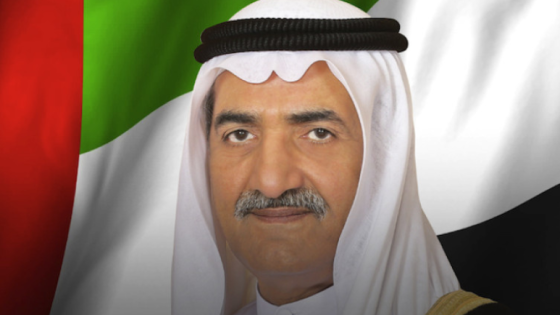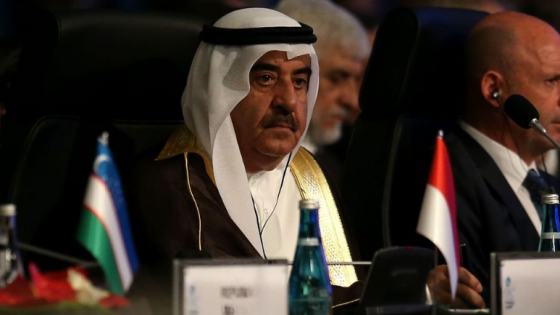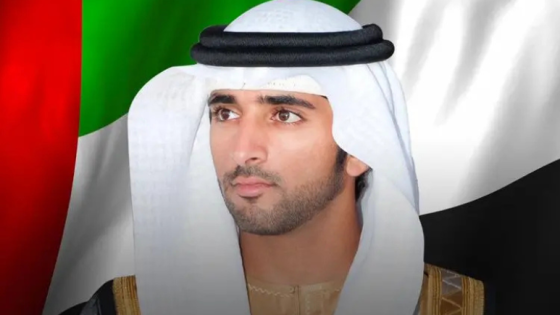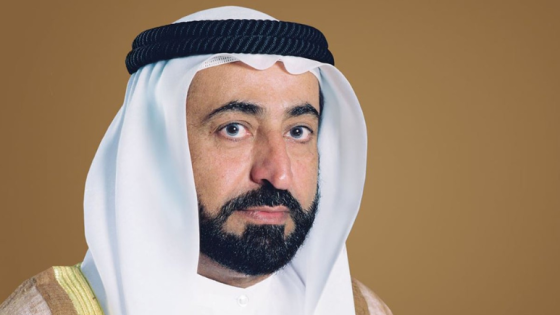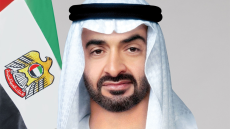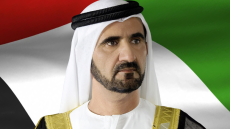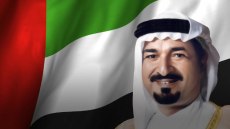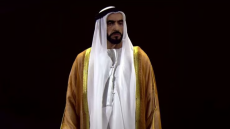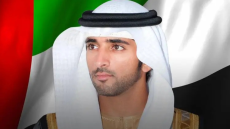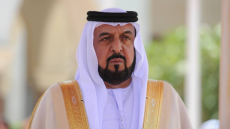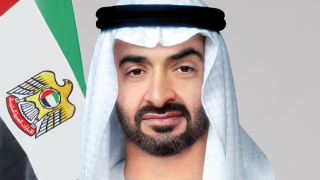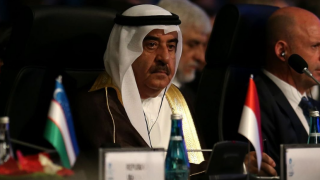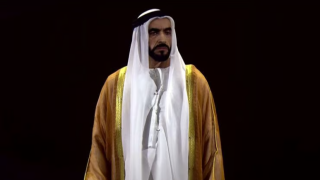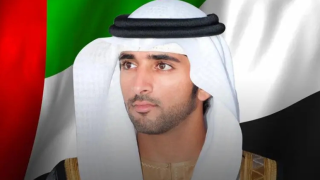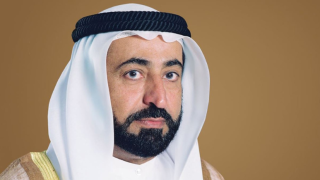Hamad bin Muhammad Al Sharqi, the ruler of the Emirate of Fujairah and Supreme Council Member, exemplifies visionary leadership in the United Arab Emirates. As Crown Prince, Sheikh Hamad bin Mohammed Al Sharqi has embarked on transformative initiatives, including establishing the first medical clinic and ensuring healthcare access for his people. His commitment to development highlights the progressive vision of the Al Sharqi family under Sheikh Hamad’s guidance.
Biography of Sheikh Hamad bin Muhammad Al Sharqi
Hamad bin Mohammed Al Sharqi is a prominent Emirati royal and politician who has been the ruler of the Emirate of Fujairah since 1974. Born on February 22, 1949, in Fujairah, United Arab Emirates, he is the son of Sheikh Mohammed bin Hamad Al Sharqi and Sheikha Fatima bint Rashid Al Nuaimi, connecting him to significant royal lineages in the area.
Education and Early Life of Hamad bin Muhammad Al Sharqi
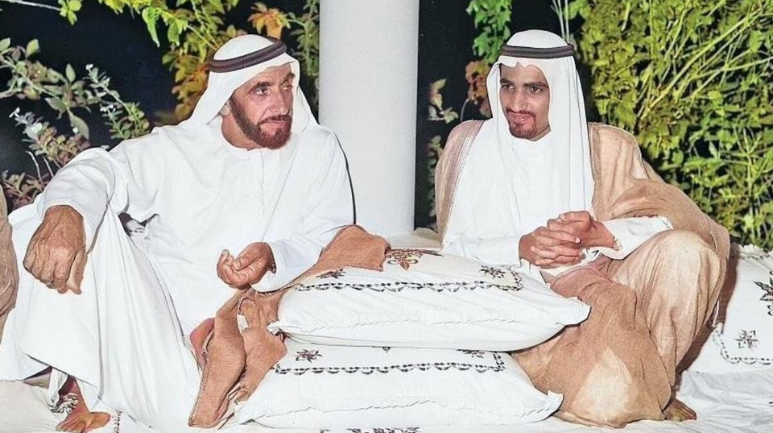
Hamad Al Sharqi began his education in Fujairah before moving to the United Kingdom for further studies. He attended the Eastbourne School of English for Arabic studies and subsequently enrolled in the Mons Officer Cadet School in 1970 to prepare for a military career. After returning to the UAE in 1971, he assisted his father as Deputy Ruler of Fujairah and was appointed Minister of Agriculture and Fisheries shortly after the UAE federation was established.
Reign as Ruler
Sheikh Hamad ascended to the throne at the young age of 25 following his father’s passing in 1974. His rule has been characterized by substantial progress across various sectors:
- Political Role of Sheikh Hamad: As a member of the Supreme Council of the Union, Sheikh Hamad plays a crucial role in the governance of the nation.
- He is also recognized for his diplomatic efforts, representing the UAE at international events, thanks to his fluency in both Arabic and English.
Personal Life of Sheikh Hamad
Sheikh Hamad is married and has children who actively engage in public service roles within Fujairah. His family maintains strong connections with other ruling families in the UAE, reflecting historical alliances that have persisted for centuries.
Legacy of Hamad bin Muhammad Al Sharqi
Sheikh Hamad bin Mohammed Al Sharqi’s legacy is defined by his dedication to the development and modernization of Fujairah. His leadership fosters a culture of progress while preserving the emirate’s rich heritage, ensuring its continued success in a rapidly evolving world.
Read more: Hamdan bin Mohammed bin Rashid Al Maktoum: Visionary Leadership Shaping Dubai’s Future
Major Achievements of Sheikh Hamad bin Mohammed Al Sharqi
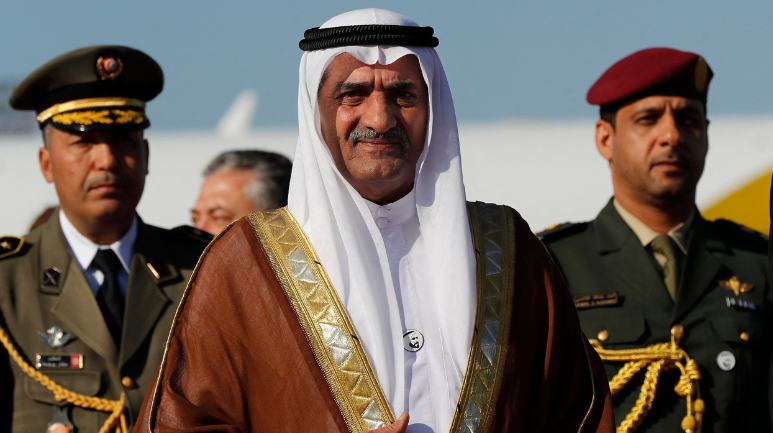
Since beginning his reign in 1974, Hamad bin Mohammed Al Sharqi has made remarkable contributions to Fujairah’s development and modernization. His key achievements span various sectors, including economic growth, cultural enrichment, and social welfare.
Economic Development
- Strategic Hub: Under his guidance, Fujairah has become a vital strategic center for trade and energy. The emirate’s ports are among the largest in the UAE, facilitating major oil transport and storage operations. The Port of Fujairah is recognized as the second-largest bunkering hub globally, equipped with deep-water berths that can accommodate very large crude carriers.
- Tourism Growth: Sheikh Hamad has placed a strong emphasis on tourism, resulting in a significant rise in hotel accommodations and tourist attractions. As of 2023, Fujairah boasts 5,000 hotel rooms across 31 hotels, generating substantial revenue from the hospitality industry.
- Entrepreneurship Promotion: He has actively supported entrepreneurship, particularly among the youth, leading to the issuance of around 21,000 business licenses across various sectors. This initiative has strengthened small and medium enterprises (SMEs) within the emirate.
Cultural Advancements
- Cultural Hub: Sheikh Hamad has established Fujairah as a center for arts and culture. He received the International Theatre Institute Medal for his dedication to cultural development, which includes preserving historical sites such as Fujairah Fort and Al Bidya Mosque.
- Sports Development: His commitment to sports has resulted in the creation of clubs like the Fujairah International Marine Club and the Fujairah Martial Arts Club, which host international competitions and promote athletic excellence.
Social Welfare Initiatives
- Humanitarian Efforts: In 2018, he founded the Hamad bin Mohammed Al Sharqi Foundation for Humanitarian Affairs to support those in need, reflecting his dedication to social welfare.
- Healthcare Improvements: Sheikh Hamad’s administration has enhanced healthcare facilities in Fujairah, improving access to medical services for residents.
International Representation
Throughout his reign, Sheikh Hamad has represented the UAE at numerous global summits and conferences, including Islamic summits and interfaith dialogues. His involvement in these events highlights his role in articulating the UAE’s viewpoints on international matters.
Overall, Sheikh Hamad bin Mohammed Al Sharqi’s leadership has profoundly influenced Fujairah’s development trajectory, promoting economic growth while preserving cultural heritage and enhancing the well-being of society.
Read more: Mohamed bin Zayed Al Nahyan: Transformative Leadership of the UAE’s Visionary President
Key Infrastructure Projects Initiated by Sheikh Hamad bin Mohammed Al Sharqi
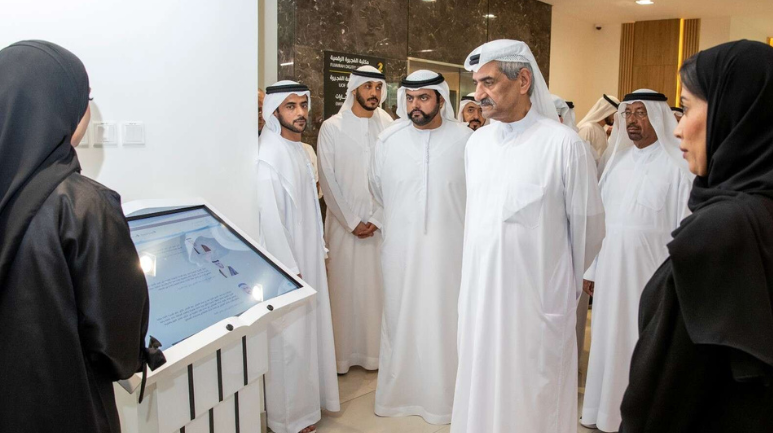
Hamad bin Mohammed Al Sharqi has launched several significant economic initiatives that have profoundly transformed Fujairah into a contemporary economic center. Below are some of the notable projects:
Expansion of Fujairah Terminals
In June 2021, Sheikh Hamad oversaw the launch of an AED 1 billion expansion program for Fujairah Terminals. This initiative aimed to improve infrastructure and services at one of the Middle East’s key maritime hubs, positioning Fujairah as a premier global maritime destination. The project is in line with the Fujairah Strategic Plan 2040, which emphasizes enhancing trade with GCC countries, India, and East Africa.
Establishment of Fujairah Petroleum Industries Zone (FOIZ)
In April 2011, Sheikh Hamad issued an Emiri Decree to create FOIZ, which has become essential for improving navigation and supporting the oil and gas sectors in the Emirates. This initiative has led to the development of numerous oil-related economic and logistics projects, significantly increasing job opportunities and modern factory establishments in Fujairah.
Abu Dhabi-Fujairah Pipeline Project
In 2012, he announced the oil export initiative through the Abu Dhabi-Fujairah pipeline. This strategic project was designed to enhance economic development by enabling efficient oil transport and strengthening Fujairah’s role in the energy sector.
Support for Entrepreneurship
Sheikh Hamad has actively encouraged entrepreneurship among young people, resulting in the issuance of around 21,000 business licenses across various sectors. This support has played a crucial role in nurturing small and medium enterprises (SMEs), which are vital for economic diversification in Fujairah.
Infrastructure Development
His administration has made infrastructure development a priority, focusing on road enhancements and public service improvements, which are essential for attracting investments and facilitating economic activities in the region. The emphasis on building a robust infrastructure has supported trade and logistics operations.
Participation in the National Investment Strategy
Sheikh Hamad has backed national initiatives aimed at increasing foreign direct investment (FDI) in the UAE, contributing to strategies that focus on key sectors such as advanced manufacturing and renewable energy. His efforts align with the broader UAE objectives to improve competitiveness and attract global investments.
These initiatives demonstrate Sheikh Hamad bin Mohammed Al Sharqi’s commitment to transforming Fujairah into a dynamic economic center while promoting sustainable development and enhancing the emirate’s international standing across various sectors.
Read more: Khalifa bin Zayed Al Nahyan: Visionary Leadership Transforming the UAE’s Future
Development of the Abu Dhabi-Fujairah Pipeline
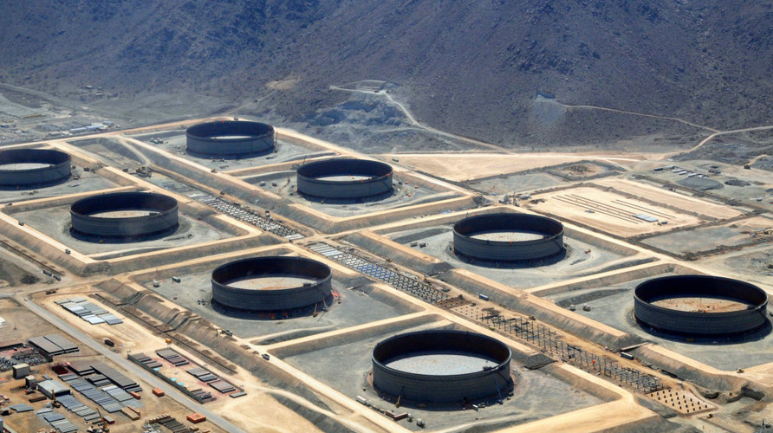
Hamad bin Mohammed Al Sharqi has been instrumental in the development of the Abu Dhabi-Fujairah pipeline, officially known as the Abu Dhabi Crude Oil Pipeline (ADCOP). This strategic project has significantly bolstered Fujairah’s position in the global oil market and has played a crucial role in the emirate’s economic advancement.
Strategic Vision
Sheikh Hamad recognized Fujairah’s potential as a vital hub for oil exports, particularly due to its advantageous location outside the Strait of Hormuz. This positioning allows for uninterrupted oil transport, even amid regional tensions, making it an essential asset for the UAE’s energy sector.
Support for Infrastructure Development
Under his leadership, Fujairah has developed critical infrastructure to support the pipeline’s operations. Port facilities have been expanded to handle large volumes of crude oil, including the construction of terminals capable of accommodating Very Large Crude Carriers (VLCCs). The port’s capacity includes two oil terminals that can manage over 50 million tons of oil annually, reinforcing its significance in the UAE’s oil exports.
Economic Impact
The ADCOP, which spans 406 kilometers, facilitates the transportation of crude oil from the Abu Dhabi Habshan field to Fujairah. This pipeline can transport over 600,000 barrels of crude oil daily, with the potential to expand to 1.6 million barrels per day if necessary. This development has transformed Fujairah into a key storage and export hub for oil, significantly contributing to the emirate’s economic diversification and resilience.
Promotion of Foreign Investment
Sheikh Hamad’s advocacy for the pipeline has attracted substantial foreign investment in Fujairah’s energy sector. The emirate has become a base for major international energy companies, positioning itself as a key player in the global energy supply chain.
Long-term Strategic Planning
The development of the ADCOP aligns with Sheikh Hamad’s broader vision for Fujairah, as outlined in initiatives like the Fujairah Strategic Plan 2040. This plan aims to enhance trade and logistics capabilities while fostering sustainable economic growth.
Read more: Zayed bin Sultan Al Nahyan: Visionary Leadership and Legacy of Sheikh Zayed
Celebrating 50 Years of Fujairah Ruler Sheikh Hamad
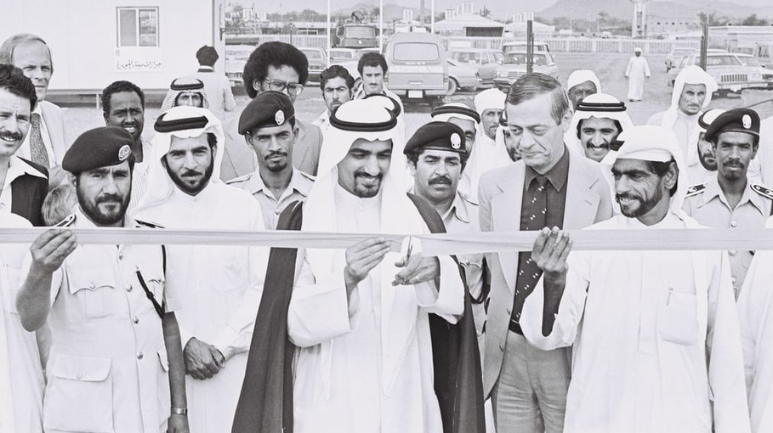
On September 18, 1974, Sheikh Hamad bin Mohammed Al Sharqi ascended to the position of Ruler of Fujairah at the age of 25. Now, fifty years later, he remains in power, surpassed in tenure only by Sheikh Dr. Sultan bin Muhammad Al Qasimi, the Ruler of Sharjah, who has served for 52 years.
This half-century has brought remarkable changes to Fujairah and its residents. Historical photographs depict traditional Arish palm frond houses and wooden fishing dhows gently bobbing in the Arabian Sea, with a solitary two-lane road connecting the emirate to Sharjah and beyond.
Today, residents can travel via a modern motorway that connects Fujairah city to Dubai in under an hour. The emirate has become a favored vacation spot, particularly for diving enthusiasts drawn to its clear waters. Fujairah boasts the largest port on the UAE’s east coast and ranks as the world’s second-largest bunkering provider, a term for ships’ fuel.
This evolution has managed to preserve the charm and pace of life from earlier times, exemplified by the Al Bidya Mosque, the oldest functioning mosque in the UAE, and the stunning 16th-century Fujairah Fort, which Sheikh Hamad restored 25 years ago.
Read more: UAE’s Nuclear Energy Program and Collaboration with IAEA
Following in Sheikh Hamad’s Father’s Footsteps
Sheikh Hamad became the second Ruler of Fujairah as an independent emirate, following his father, Sheikh Mohammed bin Hamad Al Sharqi, who ruled from 1938 until 1974 and led Fujairah to formal recognition as a sovereign emirate by Britain in 1952. Just before his death, Sheikh Mohammed was present with other Emirates Rulers at Union House on December 2, 1971, during the formation of the UAE. In 1974, it was Sheikh Hamad’s turn to guide his people into this new era.
At the time of his accession, Sheikh Hamad was already involved in the UAE government. After studying at the Royal Military College Sandhurst in England, he was appointed Minister for Fisheries and Agriculture while also serving as Chief of Police and Security for Fujairah.
The modernization process initiated by Sheikh Mohammed has continued to accelerate. The international airport opened in 1986, with runway upgrades in 2022 and direct flights to Cairo commencing earlier this year. The airport’s inauguration coincided with the establishment of a free zone linked to the Port of Fujairah, which began operations in 1983. Although the emirate lacked oil resources, it became a vital component of the UAE’s oil industry.
In 2008, construction started on a 360 km pipeline from Habshan in Abu Dhabi to a terminal on Fujairah’s coast, which opened in 2012. This pipeline, capable of transporting up to 1.5 million barrels of oil daily, bypasses the Strait of Hormuz, securing the UAE’s oil exports. Nearby, numerous oil tankers, bulk carriers, and cargo ships are anchored, awaiting refueling in bunkering operations that rank second only to Singapore’s port, supported by over 100 supply vessels.
Read more: UAE’s Youth Empowerment Programs for Future Leaders
Hamad bin Mohammed Al Sharqi: Transforming Education in Fujairah
The past fifty years have seen significant transformations in education, healthcare, and the arts for Sheikh Hamad’s people. The Higher Colleges of Technology for men and women opened in 2005, followed by the University of Fujairah in 2006.
Since 2003, the biennial Fujairah International Monodrama Festival has showcased solo theatrical performances featuring some of the world’s most talented actors. Additionally, the Fujairah National Theatre was established in 2005, and Fujairah Radio began broadcasting the following year.
A landmark development was the opening of Fujairah’s first beach hotel, the Hilton Fujairah, in 1978. Today, a growing number of four and five-star hotels and resorts attract over a million visitors annually, a figure that is twice the population of the UAE in 1974.
Looking ahead, Fujairah is set to construct the first station in the new Etihad Rail passenger network, which will connect the emirate to the capital in about an hour and 40 minutes via high-speed trains traveling up to 200 kph. After fifty years, the journey continues for the people of Fujairah and Sheikh Hamad.
Read more: UAE’s Global Health Contributions and Initiatives
Conclusion
Hamad bin Muhammad Al Sharqi, Ruler of Fujairah Emirate and Supreme Council Member, continues to shape a bright future for his people through innovative and inclusive leadership as the Crown Prince of the Emirate of Fujairah, Sheikh Hamad bin Mohammed Al Sharqi has made tremendous strides in enhancing public services, such as establishing the first medical clinic, significantly improving healthcare access for residents.
His dedication to the welfare of the community illustrates the core values of the Al Sharqi family. Under Sheik Hamad’s guidance and visionary initiatives, Fujairah is poised to thrive as a model of progress and sustainability within the United Arab Emirates. The efforts of Mohamed bin Hamad Al Sharqi and other leaders in the region further reflect a commitment to a prosperous future for generations to come.
